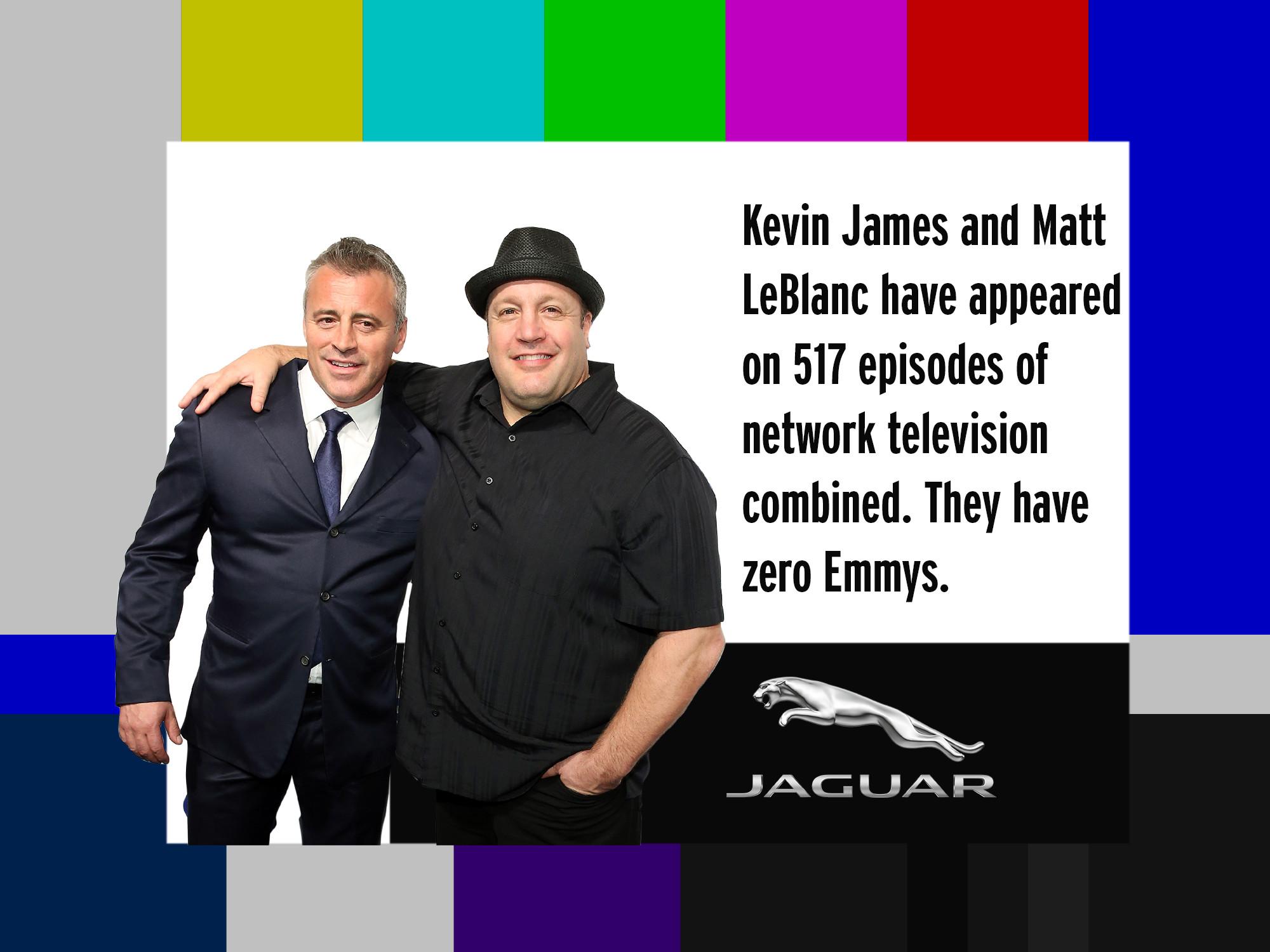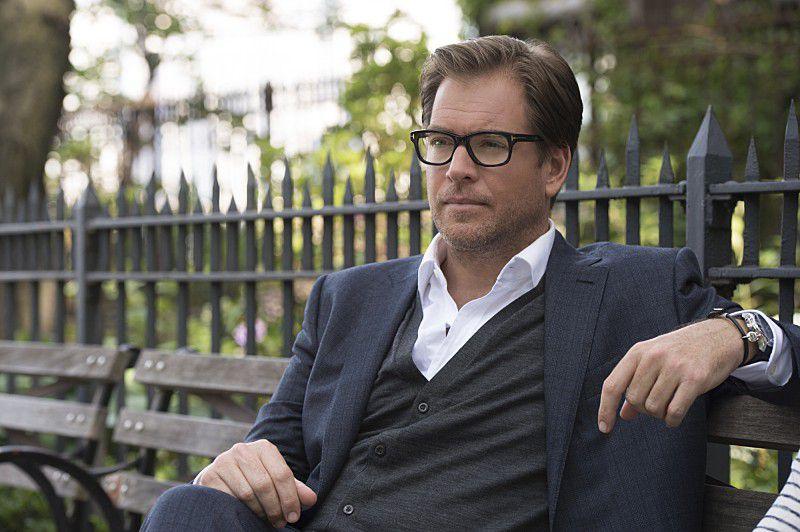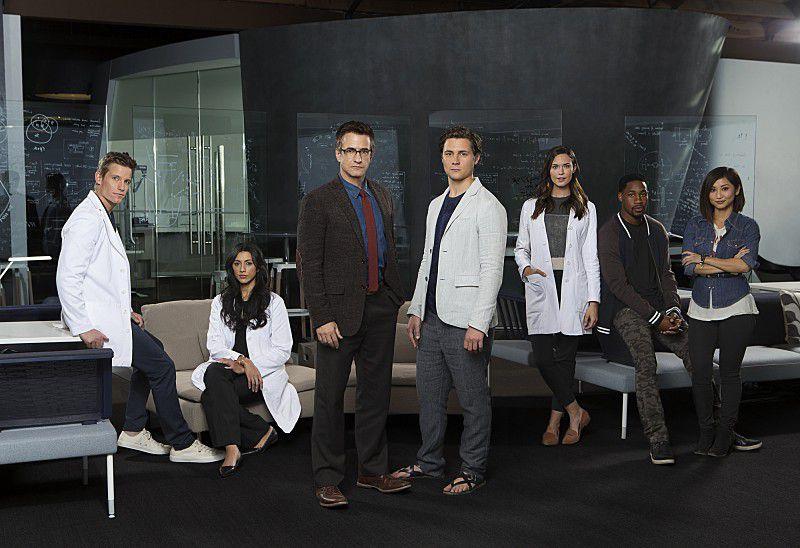
We talk about TV all the time, but we hardly talk about all the TV. This week, we’re looking at the shows, people, and networks that we know people love — that we love — but typically fall outside of the critical hivemind. This is TV Airing in Plain Sight.
Kevin Can Wait feels like a fever dream. As the first of its network’s six fall shows to hit the air, Kevin James’s new sitcom kicks off a whole lineup of hopeful Next Big Things — and yet the fact that it’s first is the only novel or exciting thing about it. The rest of it lives in a defiantly pre-irony world. There’s a blue-collar dad who loves his beer ’n’ burgers. A younger, thinner wife. A studio audience. And not a single acknowledgement we might have seen any of this before.
To the modern TV viewer, whose brain has been rendered self-referential Swiss cheese by the twin forces of postmodern TV and content saturation, it feels like stepping into a parallel universe.
Because you are in a parallel universe. You’re on CBS.
In a world where Mr. Robot is on the same network as Suits and Hannibal was on the same network as Chicago Med, TV isn’t as easily divided into fiefdoms as it once was. Calling a network premium versus blue-chip is a mostly intangible distinction, both because relevance is so hard to quantify and because it’s no longer limited to just a handful of designated prestige arbiters. Except for the Eye, whose post-streaming, post-Nielsen, post-everything spin on the “adapt or die” credo favored by other networks has been “stay exactly the same and thrive (plus a little bit of internet).” It’s the Land Prestige Forgot — or rather, the Land That Deliberately Forgot Prestige. It’s an entire network in plain sight.
Predictably, old warhorses reflect the party line best: The Big Bang Theory, NCIS, and Survivor ain’t broke, and CBS has no plans to fix them. But fall is when networks start betting on the future, and CBS is betting that the future of broadcast looks a whole lot like the present. It already had multicam comedies — family and/or workplace — in spades (Big Bang, 2 Broke Girls, Mom); now it has three more (Kevin Can Wait, The Great Indoors, Man With a Plan). It already has a medical drama (Code Black); now it will have another (Pure Genius). It already has a spy drama (Scorpion); now it has a spy drama that is also a MacGyver reboot.
After sitting through a few concentrated hours of the CBS lineup, one arrives at something like the acceptance stage of the Kübler-Ross cycle. You may pass through denial (“Did McLovin just describe himself as an ‘online content curator’?”) and anger (“How does ‘What if … MAN … take care of … kids?!?!’ pass for a sitcom premise in 2016?”) to get there, but your final destination is a kind of grudging respect. CBS knows what works, and it has the receipts to show it. And more than that, CBS knows that increasingly few network competitors are willing to deliver what works, uncut and in bulk. Those networks are too busy trying to appeal to a demographic that’s more likely to drop their cable package altogether than watch a weekly procedural’s episodes live.
And after a years-long flirtation with formally and thematically off-kilter shows (Person of Interest, How I Met Your Mother) and straight-up quality (The Good Wife), CBS’s attentions are undivided. There are no quirky, high-concept comedies designed as bear traps for the geeky set (NBC’s The Good Place, Fox’s Son of Zorn). There are no heavily serialized, über-suspenseful dramas meant to recapture the magic of Lost (NBC’s Timeless) or 24 (ABC’s Designated Survivor). There is only a firmly held position on one side of an ever-widening cultural gap. CBS is unrepentant in aligning itself with an ethos that makes up for in numbers what it lacks in critical recognition. And numbers matter — even to Netflix, which poached CBS favorite Chuck Lorre to bring that same ethos to streaming. The Eye’s rallying cry? Well, start with the conspiratorial jokes about millennials and their gosh dern smartphones that appear in all three new CBS comedies, and you’ll have a pretty good idea of the network’s priorities.
Comedy
Yes, all three of the network’s new half-hours are multicamera sitcoms, taped on studio soundstages in front of a live audience. But as The Carmichael Show and even CBS’s own Mom prove, a format that’s unfashionable doesn’t have to be archaic. What makes these shows so shockingly old school is what they say, not how they say it.
The most blatant is Man With a Plan, a family sitcom about a man, who is Matt LeBlanc, with a plan, which is to drive his kids to and from school when his wife returns to work after more than a decade at home — and then talk about how hard it is. At length. As someone who grew up with a parenting arrangement very much like this one a full 20 years ago, I found the novelty Man With a Plan expects us to see in this setup jarring, if not insulting. The particulars, including the jokes at the expense of a “typical” and thoroughly castrated stay-at-home dad, may change between the pilot offered for review and the reshot version that actually airs for audiences in late October. But the basic premise is a theme that unites CBS’s new comedies: The world of the classic sitcom lead — white, male, middle-aged, middle class — has fundamentally changed to the point where not even comfort television can ignore it … and yet CBS believes we should experience those changes from the perspective of those same, outdated leads. If you want sitcoms by and for the new guard, go to ABC.

And then there’s Kevin Can Wait, which is about Kevin James doing what Kevin James does. Where the heroes of Man With a Plan and The Great Indoors — more on that momentarily — face existential threats in the form of liberated wives and upstart coworkers, James’s problems are more benign, if pulled from the same aging patriarch’s stick portrait of modern life. His character’s recent retirement is threatened not by the more realistic strains of a post-recession economy, but by his twentysomething daughter’s decision to drop out of college to support her effeminate British boyfriend’s fledgling app. Though the inciting incident is (cartoonishly) contemporary, the multiple-generations-under-one-roof dynamic it enables is thoroughly old-fashioned. Even when these shows gesture at acknowledging the times, they still work their way back to the proven hits.
The Great Indoors carries this approach from the home to the office. It follows a nature journalist, played by Joel McHale, as budget cuts force him from the field to his magazine’s listicle-publishin’, young-people-employin’ website. (As a young person who writes for a website, I and my peers are as specifically excluded from this show’s worldview as we are from Man With a Plan’s.) The punch lines are the laziest possible renditions of the laziest possible stereotypes about modern twentysomethings, brought to you by the management-advice section of LinkedIn: Millennials are politically correct narcissists with no real-world experience who need constant reassurance from our employers and social media feeds alike that we’re special. McHale’s coworkers aren’t even characters. They’re living incarnations of his personal and professional anxiety — anxiety The Great Indoors assumes its audience shares. (The millennials are coming for our jobs — and we’re not even allowed to say anything mean about their “emotional support animals!”)
Which, judging by the state of American discourse right now, many do. As NBC fights to resurrect its smart-comedy brand, Fox goes full sci-fi, and ABC retools a classic format for a broader, more inclusive demographic, those networks leave a vacuum that CBS is cannily rushing to fill. Despite what Modern Family’s Emmy dominance or Black-ish’s critical raves might have you believe, a giant swath of America never stopped loving conservative (creatively and politically) comedy. Catering to them, especially when others won’t, is more than good business. It’s monopoly.
Drama

CBS’s new hourlongs also deliver classic formulas wrapped in nominally fresh concepts. Take Bull, the story of a trial consultant with a one-joke name whose whole schtick is “Olivia Pope, but a white man who is also ‘loosely based’ on Dr. Phil.” Dr. Phil! But while Bull may gesture at topicality, sexiness (tagline: “He’ll get you off”), and cable-style antiheroism — he’s a jury-gamer for hire who prefers wealthy clients to innocent ones — the end result looks an awful lot like another troubled-genius crime show. Bull’s first client of the series turns out to be innocent after all, and the slick amorality of Michael Weatherly’s performance belies, as it obviously must, a deeper well of childhood pain. The Dr. Phil tie-in may bring viewers, but the reassuring rhythm of a case-of-the-week show will keep them.
MacGyver is, of course, MacGyver. But sexy. That’s really all you need to know.

The only one of the bunch that isn’t easily slotted into a procedural box — or at least, as easily — is Pure Genius, which is about an unholy cross between Peter Thiel and Mark Zuckerberg running a privatized, high-tech hospital like a startup. Created, somehow, by Friday Night Lights and Parenthood’s Jason Katims, Pure Genius is confounding: It’s half-aware of how dystopian its own premise is even as it goes out of its way to make the twerpy, arrogant billionaire into a sympathetic hero, not just a man playing God with educated professionals and their patients’ lives. In the sense that it’s unpredictable, it’s technically the most original of the CBS slate. In the sense that it seems undecided about its own point of view, it’s also incoherent. Pure Genius wants to lure its audience with an unconventional premise it’s determined to execute in the most conventional way possible.
And to cap it all, CBS threw in a four-part true crime series on JonBenét Ramsey, burned off in two quick bursts last Sunday and Monday. This is the closest CBS gets to playing into a trend: drawing from the same zeitgeist that brought us Serial, Making a Murderer, The Jinx, and O.J.: Made in America — but when CBS revisits the ghosts of the ’90s, it goes to the tabloids … and puts itself in the same league as Lifetime, A&E, and Investigation Discovery, not Netflix, FX, and HBO.
All of CBS’s dramas feature high-gloss hooks: Gadgets! Technology! Dr. Phil! (Played by … Michael Weatherly!) Scratch the surface, though, and you’ll find the same prototype that’s held up network shows for years, and that CBS is alone in valuing so highly — it’s the exclusive template for all its fall dramas. (The movie-to-show-adaptation trend, like all trends at CBS, will have to wait; Training Day hits in the spring.) It’s a model that’s allowed them to produce at an inhuman pace of up to two dozen self-contained, minimally differentiated episodes a season without burning through too much story. But it’s symbiotic: What makes the procedural convenient for a network like CBS is exactly what makes it appealing to viewers, who often want an open-and-shut case that offers all the closure and symmetrical faces real life does not. Throw in some pure, salacious true crime on top of the scripted kind and you’ve got yourself a base.
The Future
Even its attempts to modernize often leave CBS looking retrograde. This summer saw the zippy, clever, highly entertaining freshman run of BrainDead. It was a truly quirky series that seemed like an ideal transition phase for creators Robert and Michelle King: After seven seasons at the helm of network legal procedural The Good Wife, the Kings are now preparing a Christine Baranski–led spinoff for CBS’s imminent streaming service, All Access. That’s right, a streaming service — one headlined by a new Star Trek series (!) helmed by Bryan Fuller (!!) and likely starring a woman of color (!!!). It’s a choice that says that CBS isn’t just embracing the internet, but the web’s geeky, inclusive sensibility as well. (Viewers may not have gone nuts for Fuller’s last effort, Hannibal, but Tumblr sure did.)
It sounds like the perfect hedge against the flagship slate, which is soon-to-be Kingless and going six-for-six on white male leads for the new season … until you learn that CBS expects subscribers to shell out $6 a month and sit through 12 minutes of ads for every hour’s worth of show, eliminating one of the perks customers pay for while still asking them to pay. Even Hulu waited a few years before pulling the plug on its free option. The Eye seems to know what the kids are into these days; it just has no idea why they’re into it.
Oh, and the low-rated BrainDead almost certainly isn’t getting a second season — and casting news is starting to make that Good Wife spinoff look increasingly like … The Good Wife, But Without The Wife. Not a bad thing, per se; just another sign that CBS plans to use its biggest opportunity to change things up as an excuse to give us more of the same.
On the other hand, CBS seems to be making the same bet with streaming it has with broadcast: that someone has to provide the classics — and while The Good Wife and Star Trek are a different, more niche, and more internet-friendly kind of classic than NCIS, they’re classics all the same. Considering that bet has paid off handsomely in prime time, the investment seems like a smart one — and more cost effective than Netflix’s “be all things to all people” plan.

Watching CBS feels like watching those global warming PSAs where a lonely polar bear clings to a floating iceberg. Except a CBS anchored by Big Bang, Blue Bloods, and the next big NCIS spinoff is in no danger of sinking into the sea. We can crack wise about its distinct unhipness all we want; Jimmy Kimmel does every year like clockwork. But hipness was never the point. If anything, CBS seems wise not to chase prestige. Cachet is arguably best left to the premium channels and streaming services whose business models, driven by subscriber dollars rather than ratings-dependent advertising revenue, are better designed to support it. And at a time when the biggest of those streaming services is bending over backward to snag CBS’s audience with shows like Fuller House and The Ranch, it’s starting to look like hard numbers just might win out after all. Sometimes staying firmly behind the curve is the best way to get ahead of it.
Approaching new CBS shows as a critic is as humbling as it is futile. I’ve detailed these shows’ flaws at length, but what’s the point? CBS isn’t chasing my approval, even the grudging kind. It’s just looking to entertain, and make a healthy profit in the process. It’s maddening; it’s confounding; it’s three letters that stand for all of Hollywood’s inertia. It’s also kind of beautiful.